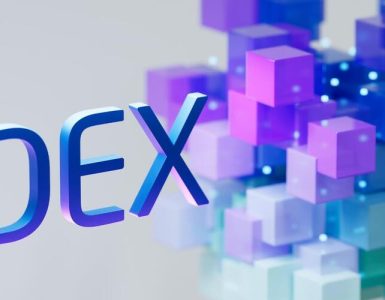Fraud and piracy pose significant challenges in the music industry, impacting artists, rights holders, and the overall ecosystem. To combat these issues, the implementation of blockchain-based identity verification is gaining prominence. This article explores the significance of identity verification in the music industry, the benefits of blockchain technology, and how it can be leveraged to combat fraud and piracy effectively.
Introduction
Identity verification plays a crucial role in establishing trust and authenticity in the music industry. With the rise of digital platforms and online transactions, it is essential to combat fraud and piracy to protect the rights and revenues of artists and rights holders.
Understanding Blockchain Technology
Blockchain technology provides a decentralized and immutable ledger that records transactions securely. It offers benefits such as transparency, immutability, and enhanced security, making it an ideal solution for identity verification.
The Need for Identity Verification in the Music Industry
Identity verification is vital in the music industry to prevent impersonation, unauthorized distribution, and misrepresentation. Fraudulent activities not only harm artists and rights holders financially but also tarnish their reputation and hinder industry growth.
Leveraging Blockchain for Identity Verification
Blockchain technology can revolutionize identity verification in the music industry. By storing verified identities on the blockchain, it creates tamper-proof records and ensures trust and transparency throughout the verification process.
Protecting Intellectual Property Rights through Blockchain
Blockchain enables the protection of intellectual property rights by establishing immutable records of ownership, licensing, and distribution rights. It ensures transparency in royalty payments, minimizing disputes and ensuring fair compensation for artists.
Collaborative Efforts and Industry Adoption
The successful implementation of blockchain-based identity verification requires collaboration among industry stakeholders, including music labels, streaming platforms, and collecting societies. Wide-scale adoption can streamline processes, minimize fraud, and establish industry standards.
Overcoming Challenges and Ensuring Privacy
While blockchain technology offers robust security, privacy concerns must be addressed. Implementing privacy-enhancing techniques and adhering to data protection regulations can ensure effective identity verification while safeguarding individuals’ privacy.
Future Potential and Expansion of Blockchain-Based Identity Verification
The future holds immense potential for blockchain-based identity verification in the music industry. Integration with emerging technologies like artificial intelligence and machine learning can enhance verification processes and streamline rights management.
Smart Contracts for Rights Management

Smart contracts, powered by blockchain technology, have the potential to revolutionize rights management in the music industry. These self-executing contracts can automate various aspects of rights management, including licensing, royalty distribution, and copyright enforcement. By encoding rights and conditions into smart contracts, artists and rights holders can have greater control over their intellectual property. Smart contracts ensure transparent and efficient transactions, reducing administrative complexities and minimizing disputes. With the automation and accuracy offered by smart contracts, the music industry can create a more streamlined and fair rights management process.
Transparency in Royalty Payments
One of the persistent challenges in the music industry is the lack of transparency in royalty payments. Blockchain technology has the potential to address this issue by providing a transparent and immutable ledger of royalty transactions. With blockchain-based solutions, artists can have real-time visibility into their earnings, ensuring accurate and timely royalty payments. This increased transparency helps to build trust between artists and rights holders, reducing disputes and ensuring fair compensation for creative work. By leveraging blockchain for royalty payments, the music industry can foster a more transparent and accountable ecosystem.
Enhanced Fan Engagement through Tokenized Fan Communities
Tokenized fan communities are emerging as an innovative way to enhance fan engagement in the music industry. By leveraging blockchain and fan tokens, artists can create exclusive fan communities where fans can interact, access special content, and participate in unique experiences. Fan tokens serve as a means of access and participation, granting fans special privileges and rewards. These tokenized fan communities foster a sense of belonging, allowing artists to establish deeper connections with their most dedicated fans. Through these communities, artists can cultivate a loyal and engaged fan base, resulting in increased support, advocacy, and overall fan satisfaction.
Blockchain for Music Metadata Management
Music metadata management is essential for accurate attribution, rights management, and royalty distribution. However, the current systems for managing music metadata often suffer from inconsistencies, errors, and inefficiencies. Blockchain technology offers a decentralized and immutable ledger that can store and update music metadata securely. By utilizing blockchain for metadata management, the music industry can ensure the accuracy, integrity, and accessibility of music metadata throughout the value chain. This improves the efficiency of processes such as licensing, content identification, and royalty distribution, benefiting artists, rights holders, and music platforms alike.
Blockchain-Based Music Streaming Platforms
Blockchain technology has the potential to revolutionize the music streaming landscape by addressing key issues such as fair compensation and transparent royalty distribution. Blockchain-based streaming platforms can provide artists with greater control over their music, allowing them to set their own pricing, distribution terms, and licensing conditions. The transparency and immutability of blockchain ensure that artists receive fair compensation for their work, as royalties are automatically and accurately distributed based on predetermined smart contracts. Additionally, blockchain-based platforms can provide direct and instant payments to artists, eliminating the need for intermediaries and reducing transaction costs. This decentralized approach to music streaming empowers artists and creates a more equitable ecosystem.
Blockchain and Collaborative Music Creation
Blockchain technology can facilitate collaborative music creation by providing a secure and transparent platform for artists, songwriters, producers, and other contributors to collaborate on projects. Smart contracts can be utilized to establish clear ownership rights and revenue-sharing agreements among collaborators. The immutable nature of blockchain ensures that contributions are properly credited and compensated, reducing disputes and fostering trust among collaborators. Blockchain-based platforms can also enable real-time collaboration and version control, allowing artists to work together seamlessly regardless of geographical barriers. This enhances creativity, promotes collaboration, and leads to the creation of innovative music.
Certainly! Here are additional pointers on other topics:
Blockchain for Music Rights Management
- Blockchain technology enables transparent and efficient music rights management.
- Smart contracts automate licensing, royalty distribution, and copyright enforcement.
- Immutable records on the blockchain ensure accurate attribution and ownership.
- Streamlines processes, reducing disputes and administrative complexities.
- Facilitates fair compensation for artists and rights holders.
- Provides transparency in royalty payments, reducing discrepancies.
- Simplifies rights clearance for sync licensing and derivative works.
- Enhances trust and collaboration among stakeholders in the music industry.
Blockchain and Ticketing Solutions
- Blockchain-based ticketing solutions revolutionize the ticketing industry.
- Provides secure and tamper-proof ticket transactions on the blockchain.
- Eliminates scalping and ticket fraud through transparent and traceable ticket sales.
- Enables peer-to-peer ticket transfers, reducing intermediary costs.
- Ensures fair distribution of tickets, enhancing fan experiences.
- Smart contracts facilitate automated ticket sales, distribution, and revenue sharing.
- Improves event management and reduces counterfeit ticketing.
Blockchain-Based Music Royalty Platforms
- Blockchain-based music royalty platforms streamline royalty collection and distribution.
- Offers transparent and real-time royalty calculations and reporting.
- Ensures accurate and fair compensation for artists, songwriters, and producers.
- Provides a decentralized and auditable ledger for royalty transactions.
- Reduces complexity and inefficiencies in royalty accounting and payment processes.
- Enhances transparency and trust between rights holders and music platforms.
- Enables direct artist-to-fan royalty payments, bypassing intermediaries.
- Promotes greater financial transparency and accountability in the music industry.
Blockchain and Music Data Monetization
- Blockchain technology enables fair and transparent music data monetization.
- Gives artists control over their data and allows them to monetize their usage.
- Smart contracts facilitate transparent data licensing and revenue sharing.
- Ensures proper attribution and compensation for data usage.
- Enables new business models based on data sharing and analytics.
- Empowers artists to participate in the value chain of their data.
- Enhances transparency and trust between data providers and users.
- Drives innovation in data-driven decision making and music marketing.
Blockchain for Music Licensing and Copyright Management
Music licensing and copyright management are complex processes that often involve multiple intermediaries and result in delays and disputes. Blockchain technology can streamline these processes by providing a transparent and efficient platform for licensing and copyright management. Smart contracts can automate the licensing process, ensuring that rights holders are properly compensated and licenses are obtained in a timely manner. The immutability of blockchain records provides a reliable proof of ownership and facilitates copyright enforcement. Blockchain-based systems can also enable real-time monitoring of music usage, allowing for more accurate royalty calculations and reducing instances of unauthorized usage or piracy.
Blockchain and Fan Funding for Independent Artists
- Blockchain-based platforms enable fan funding and direct support for independent artists.
- Tokenization and crowdfunding mechanisms allow fans to invest directly in artists’ projects.
- Artists can create their own tokens or project-specific tokens for fans to contribute.
- Fans receive exclusive rewards or benefits in return for their contributions.
- Decentralized funding eliminates the need for traditional intermediaries.
- Artists retain creative control and ownership of their work.
- Blockchain technology provides new funding opportunities for independent artists.
- Cultivates a dedicated fan base and fosters a stronger connection between artists and fans.
- Empowers artists to bring their creative visions to life.
Conclusion
Blockchain-based identity verification provides a powerful solution to combat fraud and piracy in the music industry. By leveraging the benefits of blockchain technology, such as transparency, immutability, and enhanced security, the industry can establish trust, protect intellectual property rights, and foster a thriving ecosystem for artists and rights holders.




